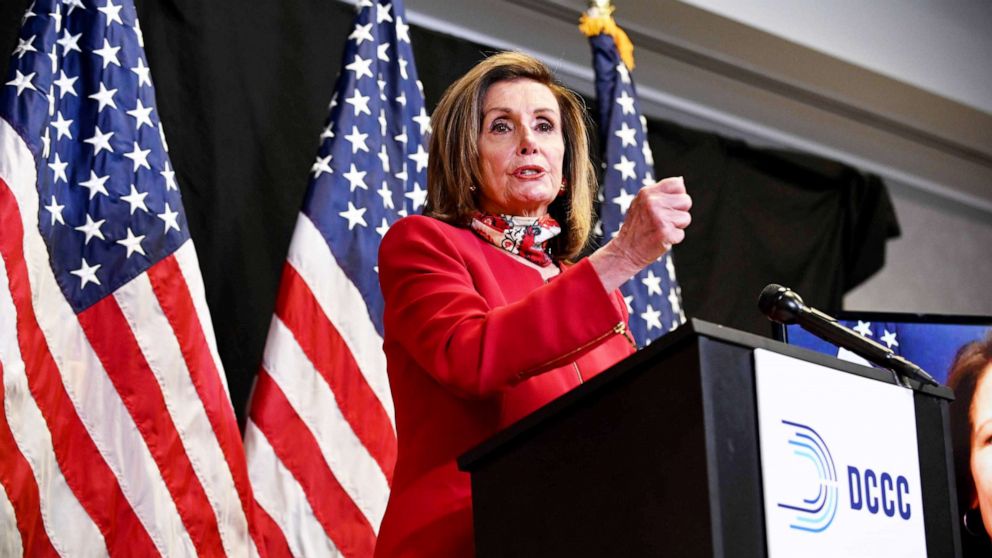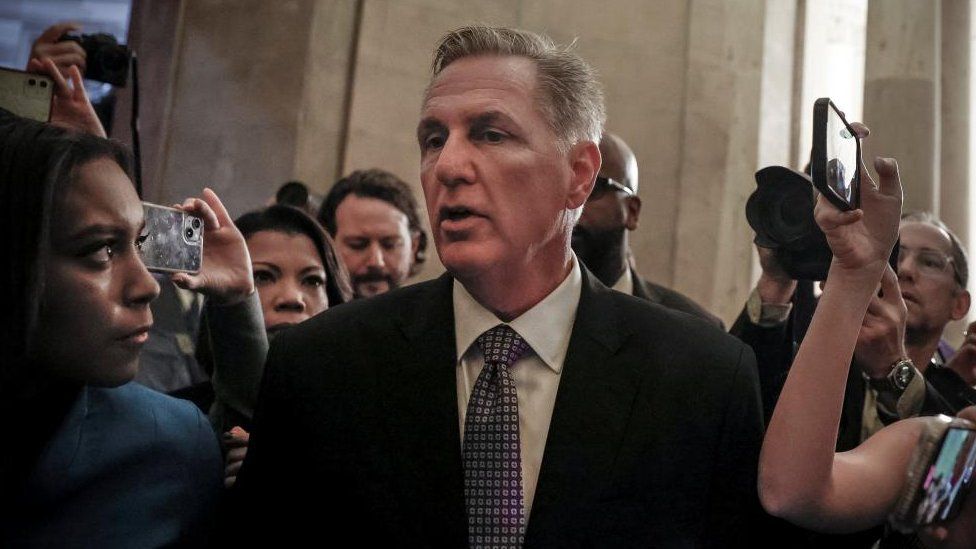Table Of Content
- Republicans fear no speaker candidate can get 217 votes: "It's going to be very difficult"
- takeaways from the historic ousting of House Speaker Kevin McCarthy
- Republicans say some constituents angry about GOP dysfunction: "They think all of us are incapable"
- Rep. Dan Meuser drops out of speaker race, leaving 8 others still in the running
- Meet the Republicans Running for Speaker
- These Are the Candidates for House Speaker

With eight candidates in the running, members will cast a successive series of secret ballots, with the candidate who garners the fewest number of votes in each round dropped from the running. Toward the end of the 19th century, the office of speaker began to develop into a very powerful one. At the time, one of the most important sources of the speaker's power was his position as Chairman of the Committee on Rules, which, after the reorganization of the committee system in 1880, became one of the most powerful standing committees of the House. Furthermore, several speakers became leading figures in their political parties; examples include Democrats Samuel J. Randall, John Griffin Carlisle, and Charles F. Crisp, and Republicans James G. Blaine, Thomas Brackett Reed, and Joseph Gurney Cannon. McCarthy said he might be open to reclaiming the post from which he was ousted if enough of the Republicans who voted for his removal are open to his reinstatement. Such a scenario appears unlikely, especially after a group of eight Republicans sided with Democrats to vacate the speakership because he relied on Democratic votes to avert a government shutdown—a decision that McCarthy has repeatedly defended.
Republicans fear no speaker candidate can get 217 votes: "It's going to be very difficult"
But several Jordan allies were angered with colleagues about forcing Jordan to drop out of the race, harboring bad feelings that could bleed into next week and negatively influence the election process. Jordan and his allies spent all week trying to convince Republican colleagues that he was the right person to be named speaker, calling for the conference to “unite” around the conservative firebrand favored by the Republican base and former president Donald Trump. House Republicans on Friday removed Rep. Jim Jordan (R-Ohio) as their nominee for speaker of the House after he failed repeatedly to earn the necessary votes to take the gavel, again delaying the House from reopening for business. As underscored by McCarthy's unseating and the two unsuccessful campaigns for the gavel that followed, the House Republican conference remains deeply divided. In all three voting rounds to elect Rep. Jordan, the list of Republicans voting against the far-right Ohioan only grew. Before him, Republican Majority Leader Rep. Steve Scalise failed to garner enough support.
takeaways from the historic ousting of House Speaker Kevin McCarthy

Following Clay's retirement in 1825, the power of the speakership once again began to decline, despite speakership elections becoming increasingly bitter. As the Civil War approached, several sectional factions nominated their own candidates, often making it difficult for any candidate to attain a majority. In 1855 and again in 1859, for example, the contest for speaker lasted for two months before the House achieved a result.
Republicans say some constituents angry about GOP dysfunction: "They think all of us are incapable"
He added, “I think there's only so many times you can go through this process, go to the floor, make a mistake, and I think that it's made us more cognizant of the need to get things done." Although Rep. Don Bacon said he thinks the House would have a speaker Tuesday night, saying "people are so discouraged by what's happened the last three weeks, that they want to come together," some of his colleagues weren't so sure. A number of House Republicans were still undecided on whom they will back as speaker as they headed into a forum where the candidates made their pitch over roughly two and a half hours.
When you're five people or eight people and you undercut the majority, there's a price to pay. “Obviously, overwhelmingly, there's a viewpoint that we do get that the American people are frustrated with the processes that we've gone through. I would say back to the American people that I think that these few weeks have given us a better chance to learn about each other,” Sessions said.
Republicans Search for Unity on House Speaker Candidate Ahead of Vote - The New York Times
Republicans Search for Unity on House Speaker Candidate Ahead of Vote.
Posted: Tue, 10 Oct 2023 07:00:00 GMT [source]
He said “it’s going to be tough” when asked whether he’s concerned it will cost Republicans the majority. Right now this week, we need to get back in business,” said Buchanan, who is backing fellow Florida Rep. Byron Donalds for the job. Meuser, who dropped out of the speaker's race for other "commitments," warned that the GOP dysfunction could cost the party the House and said that Trump supported his decision to withdraw. There is also disagreement about whether members will automatically fall in line behind whichever candidate gets the most votes, foreshadowing that the same divisions that have trapped the House GOP in this crisis are not showing any signs of letting up.
Lawmakers are divided over who can best unite the conference, fundraise for Republican candidates, and keep the government funded ahead of next month’s deadline. Rep. Kevin Hern, R-Okla., was one of the first candidates who jumped into the speaker's race, immediately announcing his candidacy to reporters after House Republicans dropped Jordan as their nominee. "He is the right person for the job. He can unite the conference. He understands the dynamics of the conference. He also understands what it takes to win and keep a majority," McCarthy said to Punchbowl News. After voting to abandon Jordan as their nominee by a vote of , GOP lawmakers headed home for the weekend to recuperate after a chaotic series of events on Capitol Hill.
House speaker race widens to 9 Republicans vying for nomination
After giving his speech at tonight’s candidate forum, Rep. Dan Meuser dropped out of the speaker’s race, per members in the room. Bacon had a message for those members who set the process in motion by voting to vacate the chair, which ended the speakership of Kevin McCarthy. Rep. Thomas Massie of Kentucky said “probably, not immediately” when asked whether he believed any of the candidates can reach the requisite votes on the floor.
These Are the Candidates for House Speaker
On the floor of the House, the presiding officer is always addressed as "Mister Speaker" or "Madam Speaker", even if that person is serving as speaker pro tempore. When the House resolves itself into a Committee of the Whole, the speaker designates a member to preside over the committee, who is addressed as "Mister Chairman" or "Madam Chairwoman". The presiding officer also rules on all points of order but such rulings may be appealed to the whole House.
The incumbent speaker, Democrat Nancy Pelosi, was elected to a 4th (2nd consecutive) term, defeating Republican Kevin McCarthy 216–209, with two votes going to other individuals. As only 427 representatives in the 435-member House cast a vote (due to vacancies, absentees, or members voting present), 214 votes were necessary to win. On the other hand, when the speaker and the president belong to opposite parties, the public role and influence of the speaker tend to increase. As the highest-ranking member of the opposition party (and de facto leader of the opposition), the speaker is normally the chief public opponent of the president's agenda. In this scenario, the speaker is known for undercutting the president's agenda by blocking measures by the minority party or rejecting bills by the Senate.
"My hat is in the ring, and I feel confident I can win the votes where others could not. I have no special interests to serve; I’m only in this to do what's best for our Nation and to steady the ship for the 118th Congress," Bergman said in a statement. Jordan afterward said he had no regrets about how he handled his run and hopes the GOP conference can elect someone. The Pennsylvania Republican said he hasn't decided whether he will endorse a candidate. A lot of members "don't want to work with Democrats, but it might end up to be a point where that's the only way. We’ve got to get the government open. People are very angry, upset,” the Florida Republican said. Rep. Dan Meuser dropped out of the race Monday evening, leaving eight House Republicans still in the running.

He went on to endorse Jordan for the post, but Trump’s interest in the position could be reignited if House Republicans fail to rally around a candidate by the end of the week. Some rightwing Republicans, including Reps. Marjorie Taylor Greene of Georgia and Troy Nehls of Texas, had previously suggested that Trump be the next Speaker. "It is my greatest honor to serve with all of you in this decisive time, and I would be humbled to earn your support and, and by God's grace, lead our historic cause as your Speaker," he wrote, signing off the letter to his colleagues "for freedom."
Republicans made O'Neill the target of their election campaigns in 1980 and 1982 but Democrats managed to retain their majorities in both years. Trump is currently the frontrunner in the Republican presidential primary and has been charged in four separate criminal cases, which are expected to play out over the coming months. While the House Speaker is not required to be a sitting member of Congress, GOP House rules currently prohibit anyone under a criminal indictment on felony charges carrying more than a two-year sentence from serving in Republican leadership, though Republicans could change the rules.
Some Republicans who had said they were considering running for the position on Friday announced over the weekend that they would not seek the top job, including Representatives Jodey C. Arrington and Roger Williams, both of Texas. Albert's successor, Democrat Tip O'Neill, was a prominent speaker because of his public opposition to the policies of President Ronald Reagan. O'Neill is the longest continuously serving speaker, from 1977 through 1987.
He also helped ensure the passage of several domestic measures and foreign assistance programs advocated by Presidents Franklin D. Roosevelt and Harry Truman. The power of the speaker was greatly augmented during the tenure of the Republican Thomas Brackett Reed (1889–1891, 1895–1899). Reed, however, declared that members who were in the chamber but refused to vote would still count for the purposes of determining a quorum. Through these and other rulings, Reed ensured that the Democrats could not block the Republican agenda.
In that case, even though the 26th United States Congress convened on December 2, the House could not begin the speakership election until December 14 because of an election dispute in New Jersey known as the "Broad Seal War". Two rival delegations, one Whig and the other Democrat, had been certified as elected by different branches of the New Jersey government. The problem was compounded by the fact that the result of the dispute would determine whether the Whigs or the Democrats held the majority. Neither party agreed to permit a speakership election with the opposite party's delegation participating.

No comments:
Post a Comment